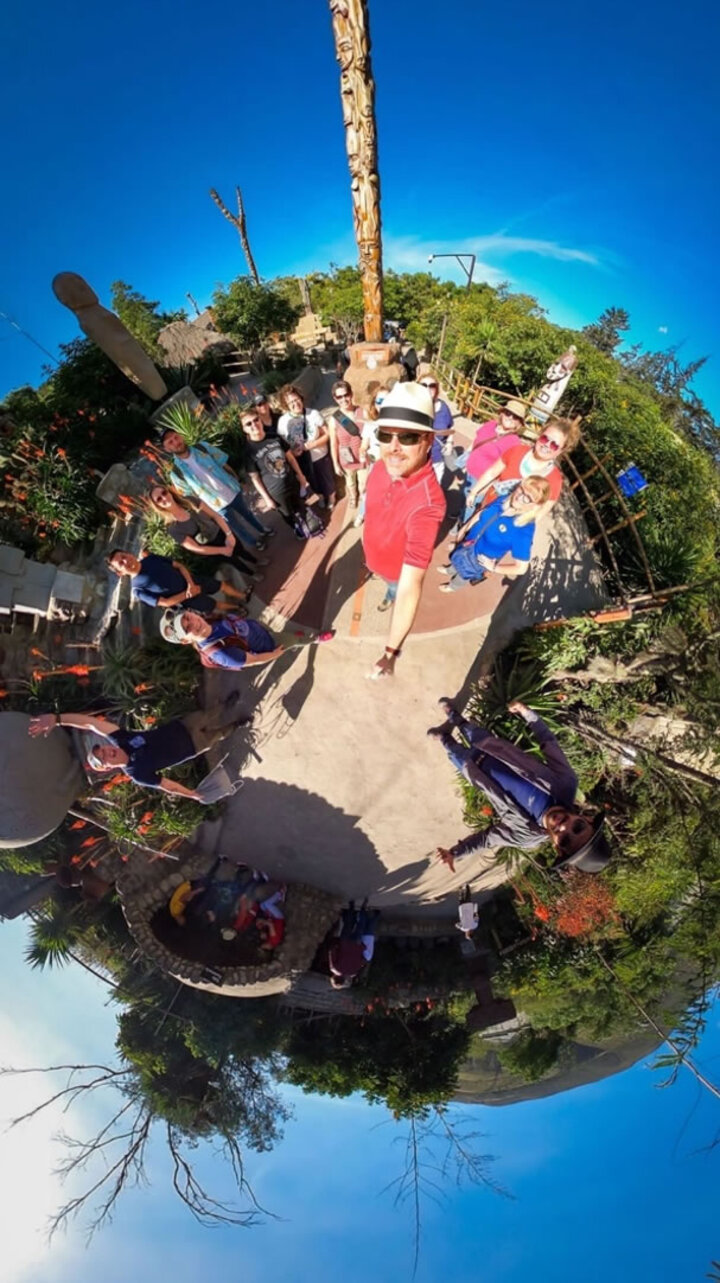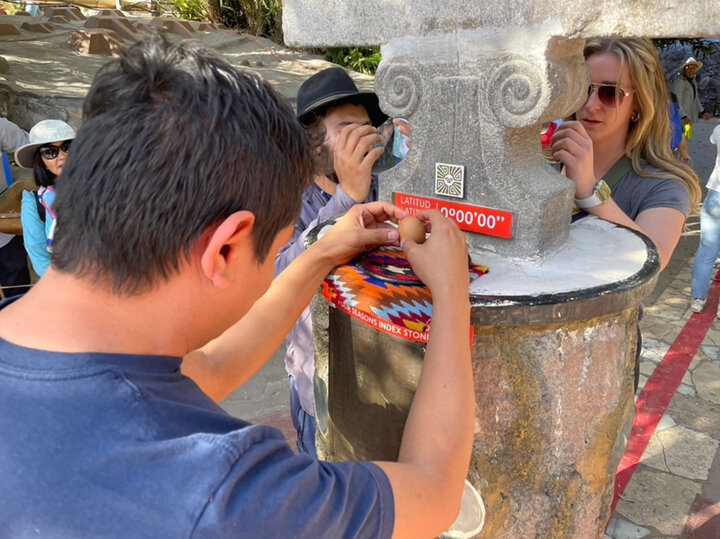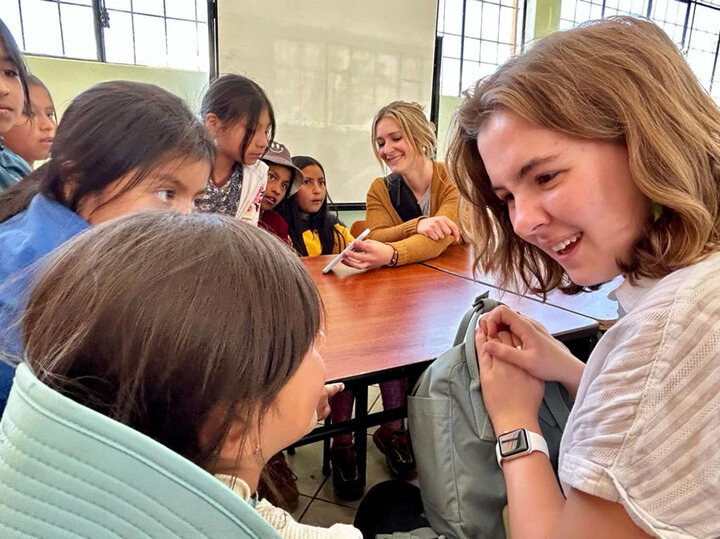Ecuador Study Abroad
When: June, 2023
In June 2023, restarting the tradition of intense short-term travel study for graduate students that the pandemic had interrupted, eight TLTE doctoral students, one Masters student, and one undergraduate UCARE student, were led by three M-cubed faculty members (Drs. Ted Hamann, Jenelle Reeves, and Stephanie Wessels) on an intense, 10-day trip to Ecuador. The trip, which embedded coursework on comparative education and language planning, started in Quito. There we recovered from jet lag and acclimatized to the high altitude before exploring the capital city’s colonial core and then visited a produce market and the nearby Intiñan Museum and Mitad del Mundo monument both of which pertain to identification of the equator’s precise location.
In alignment with the multicultural and multilingual threads of the M-cubed mandate, the main focus of the trip was to consider Ecuadorian schooling—what it accomplishes and what it seeks to accomplish—and Ecuador’s ongoing negotiation of being a segmented multicultural society in which indigenous identifying populations resist their longstanding subordination. Exploring these themes, we visited a school funded entirely by US-originating grant dollars, a bilingual public primary school, an after-school academic enrichment program, a tuition-dependent private school, a grant-dependent preschool, and a new STEM-oriented public university that has the immodest charge of precipitating Ecuador’s transformation into a highly technological economically robust society.
Consistent with the third M-cubed point of interest, the group also examined recent migration patterns that bring refugees from Venezuela and Colombia to Ecuador and how these newcomers are treated in school and by larger society. Our trip overlapped with Inti Raymi, the still-observed, pre-Incan summer solstice festival and engaged with several indigenous scholars who explained various distinctions between indigenous cosmologies and Western ones.
The limited oxygen of high altitude towns and cities notwithstanding, the trip was a clear success that built esprit de corps among the seven participants from the Carnegie Project on the Education Doctorate (CPED) cohort who otherwise had never all met in person. Their EdD program is otherwise pursued online. In turn, the UCARE student whose research question focused on whether preservice teachers could gain insight into teacher culture and a sense of professional camaraderie from short-term travel study answered her question with a decisive ‘yes’. We anticipate making a similar trip in the summer of 2025 that likely will again primarily include graduate students, but could also count another one or two UCARE students. TLTE alum Suzy Prenger, who now lives in Cotecachi Ecuador, was a key facilitator of the whole trip and we hope will be involved in the next round as well.
Participants:
Drs. Ted Hamann, Jenelle Reeves, and Stephanie Wessels and eight TLTE doctoral students, one Masters student, and one undergraduate UCARE student



